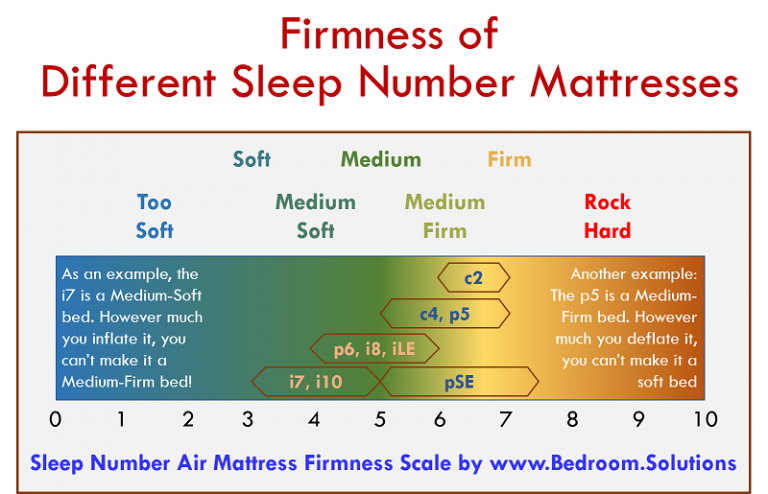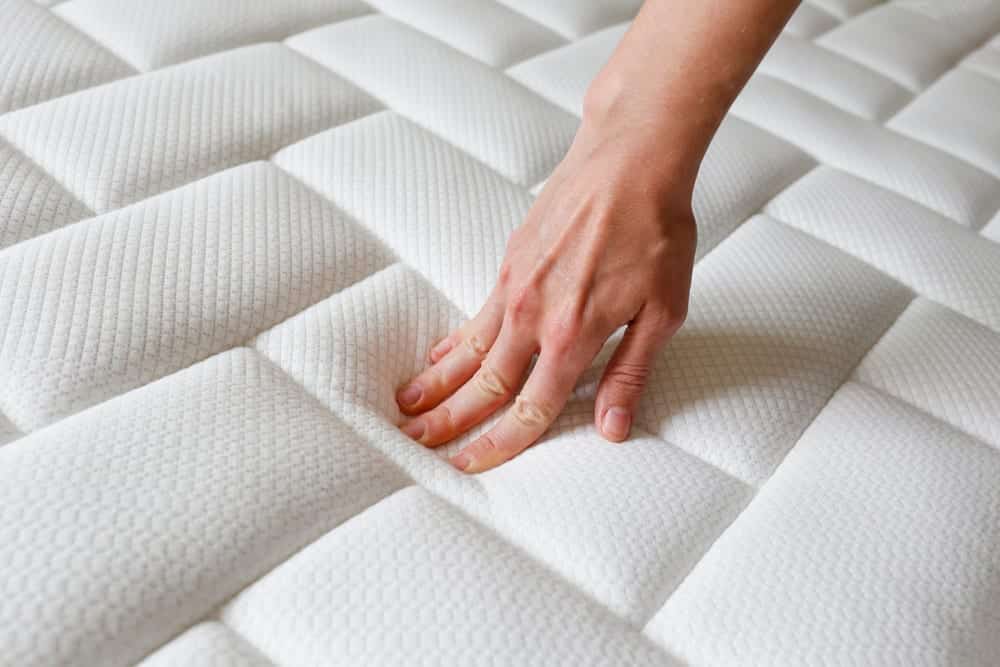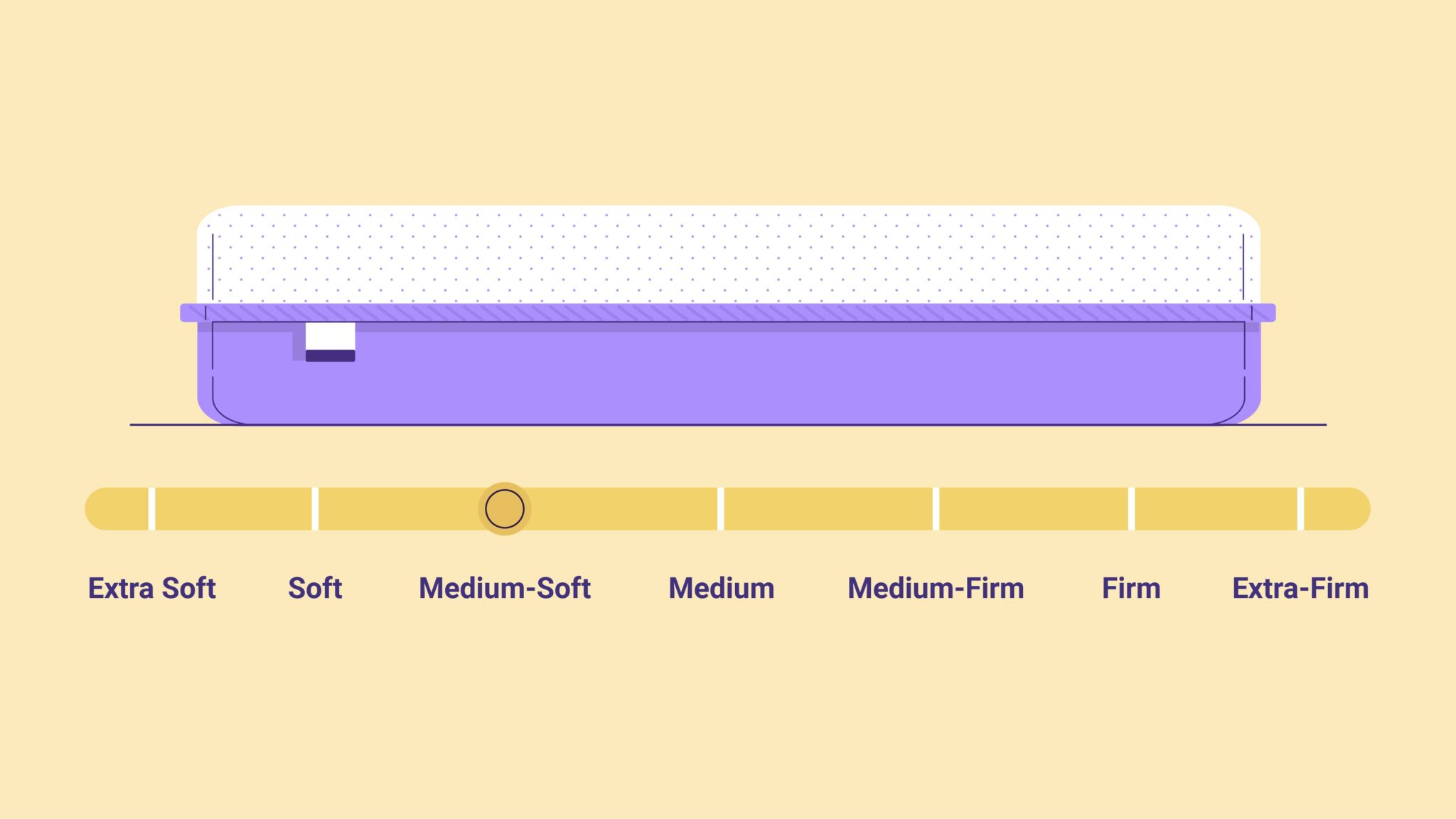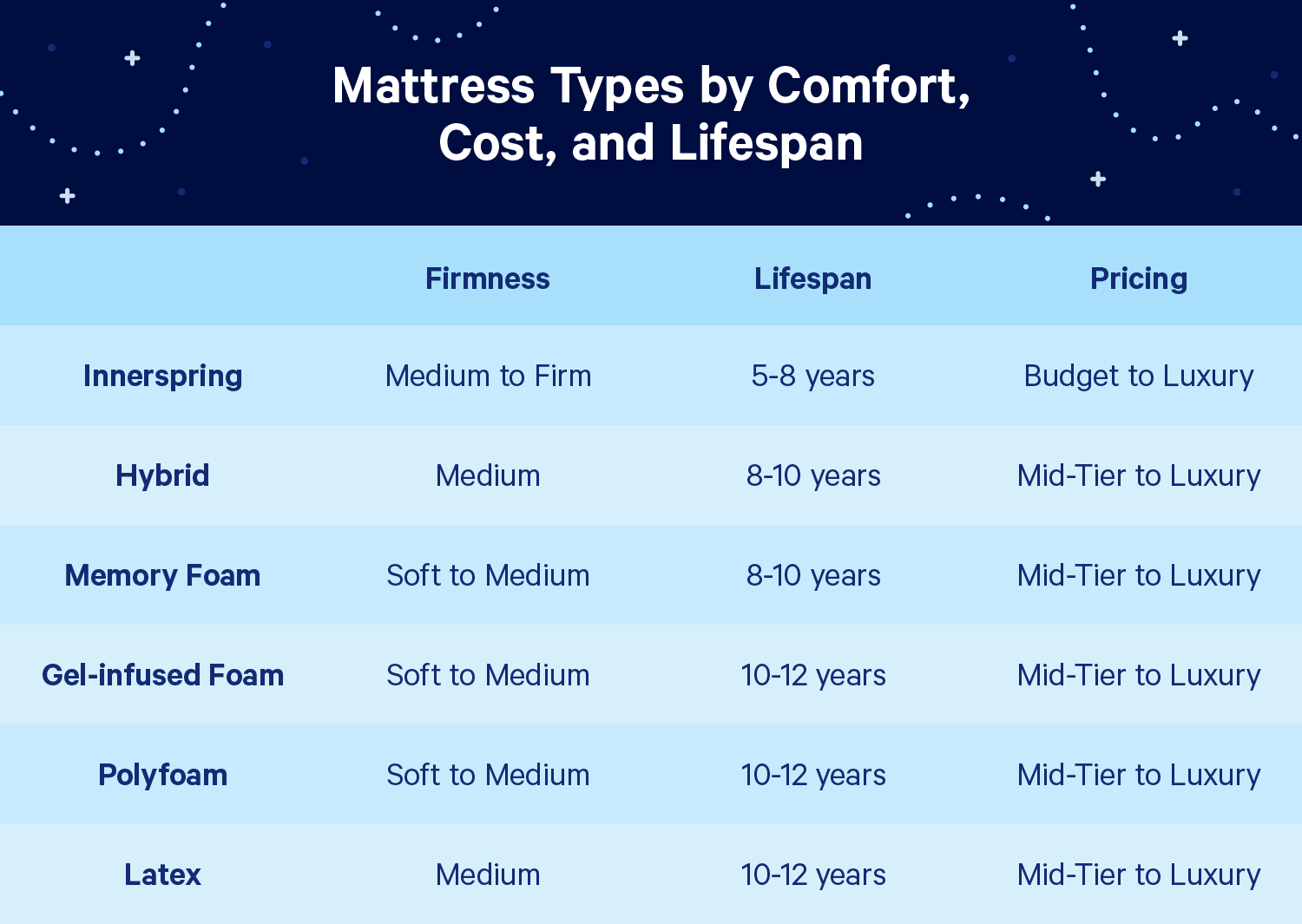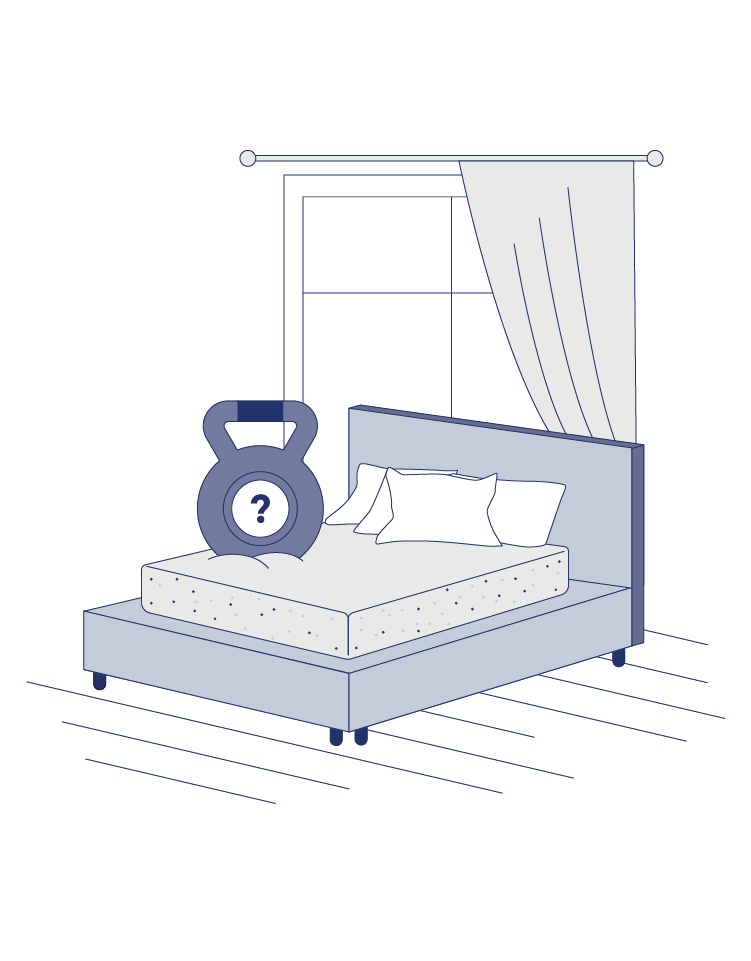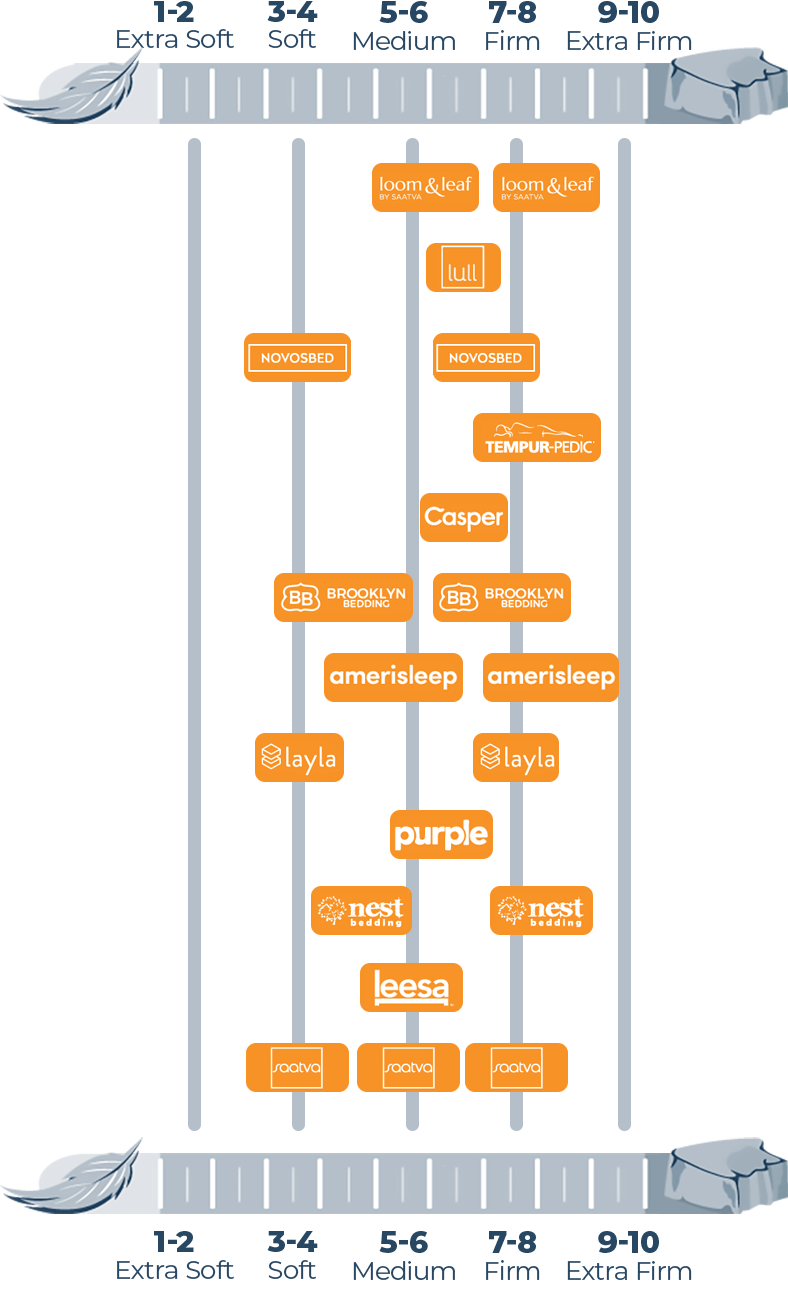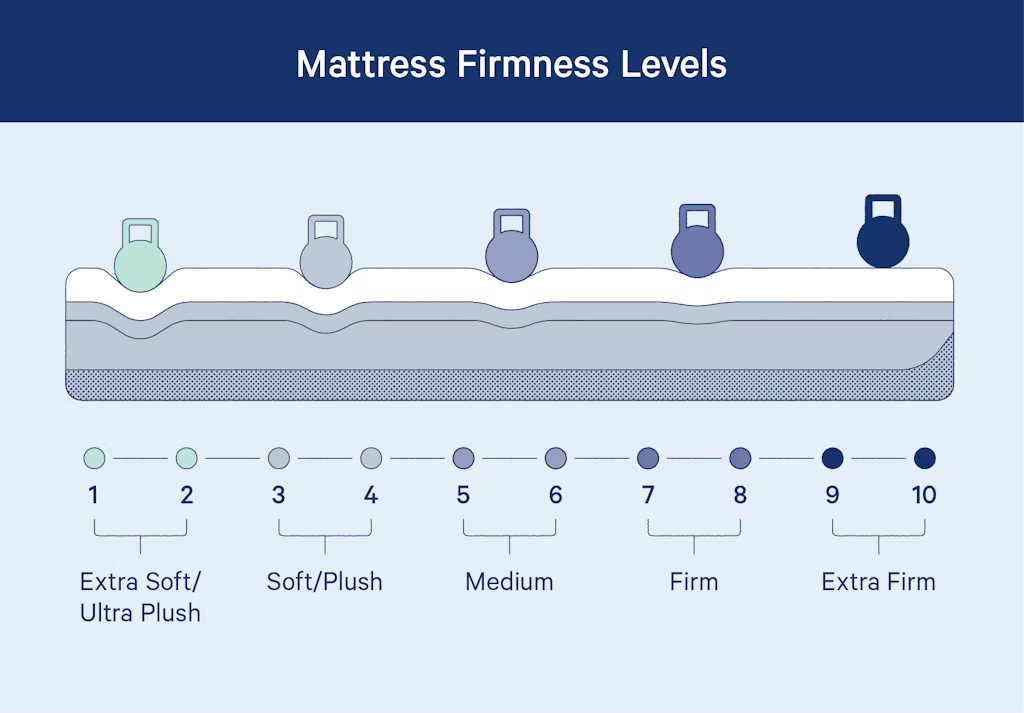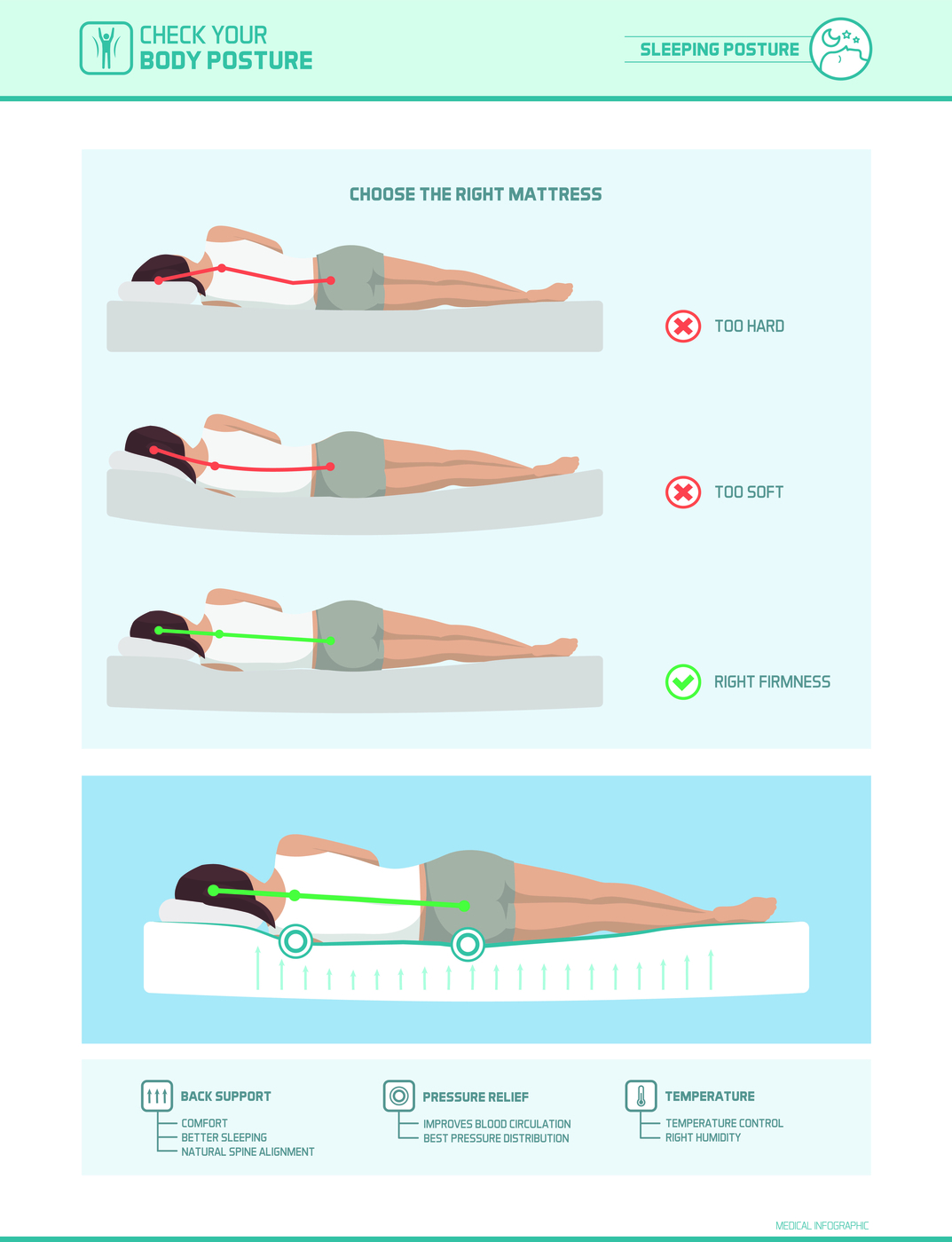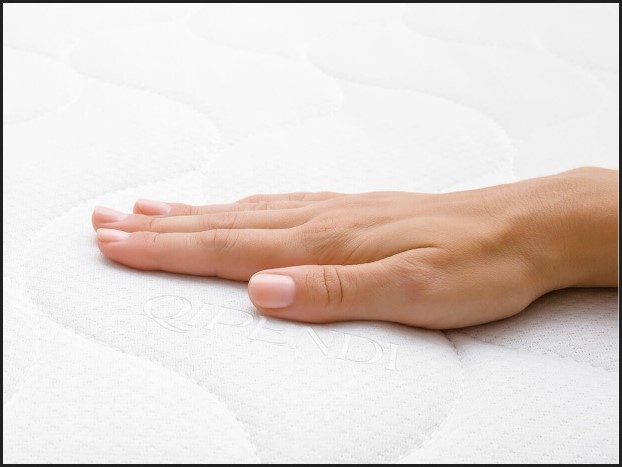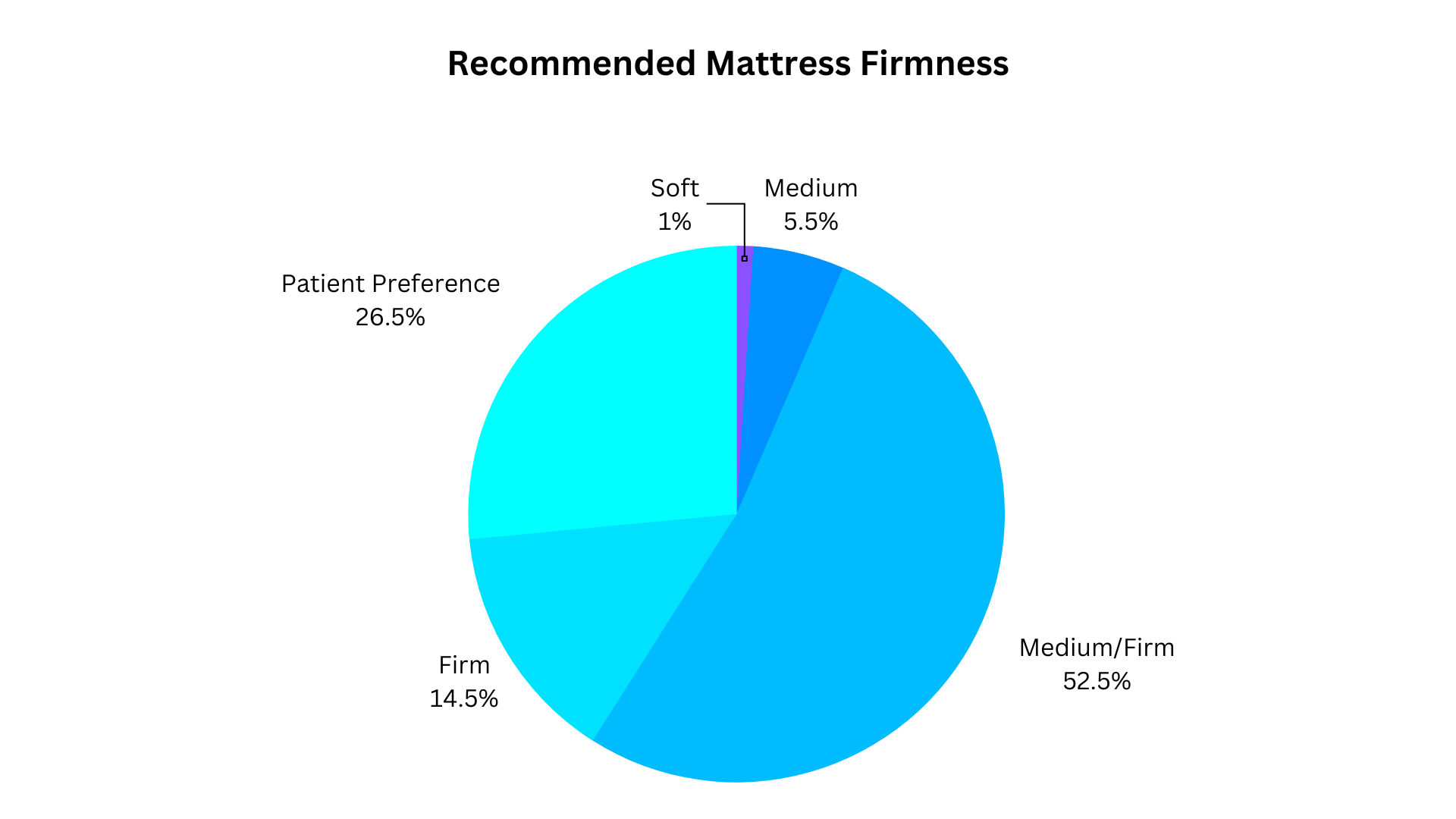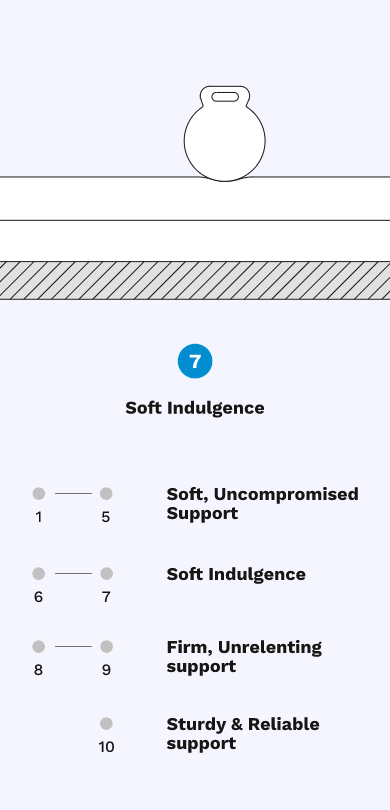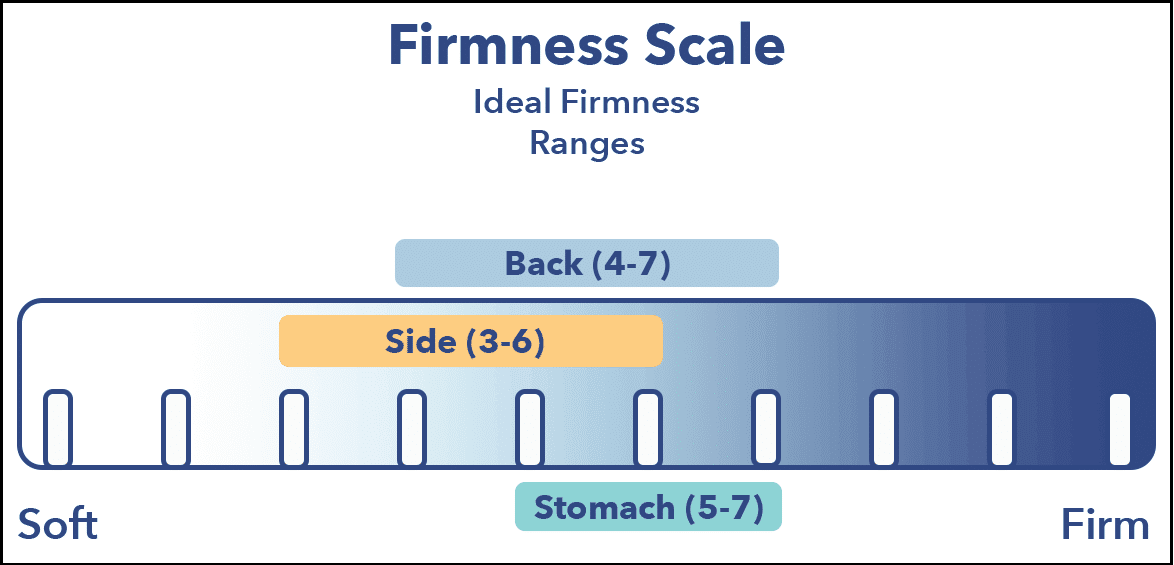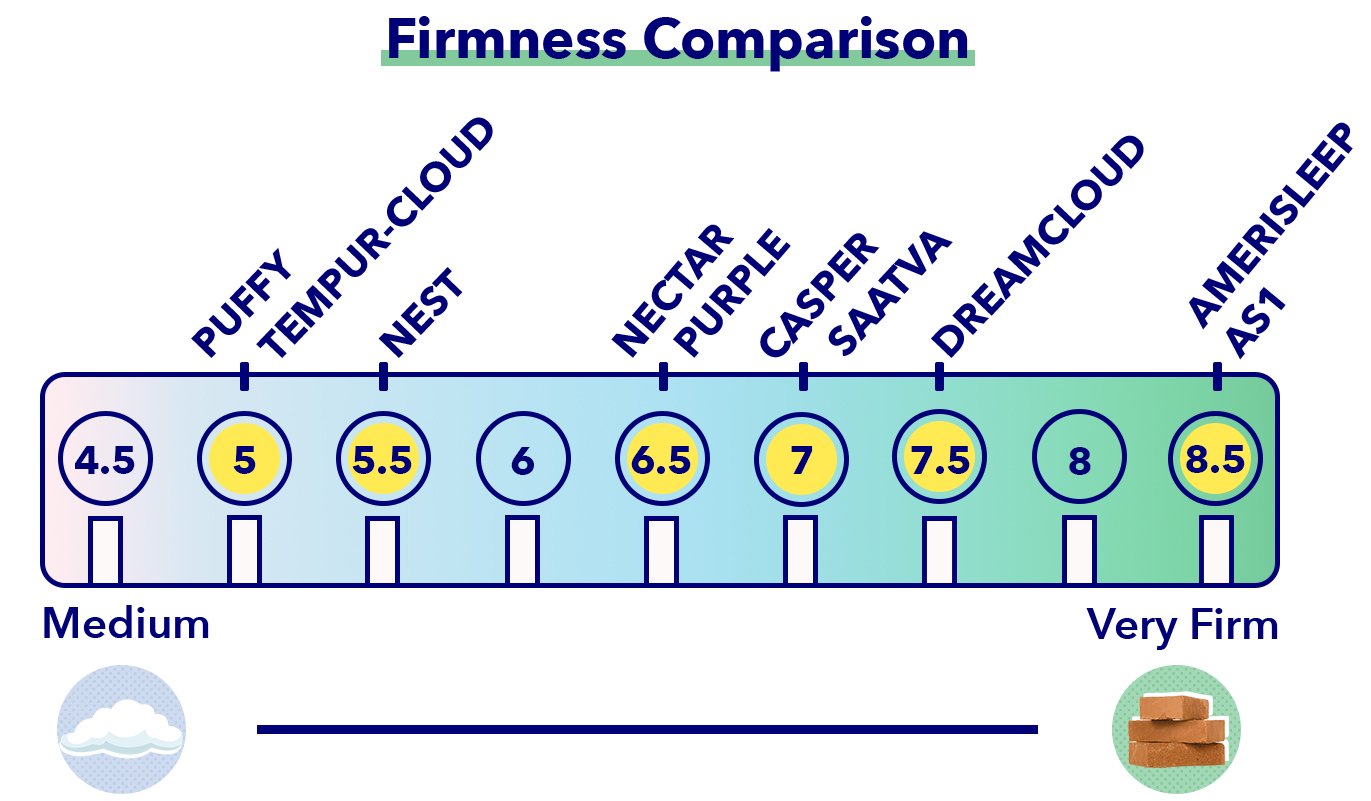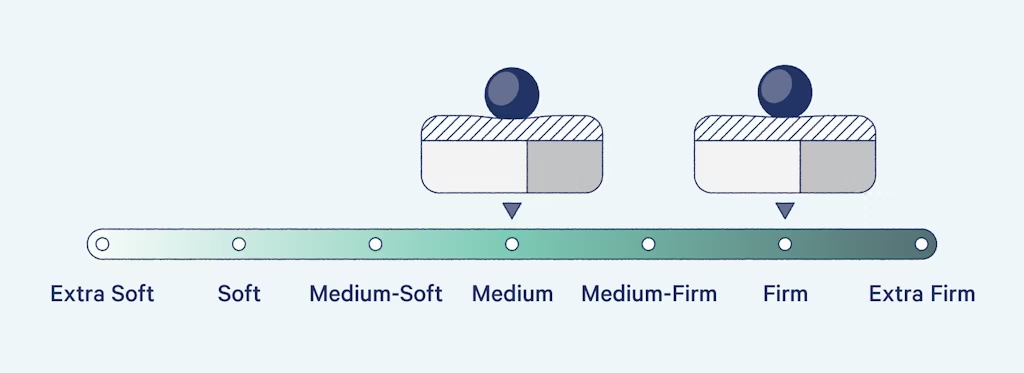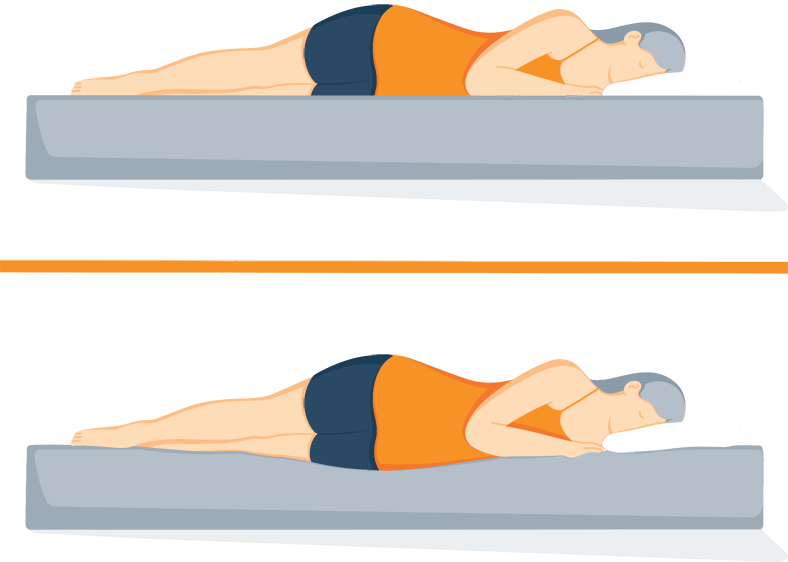When it comes to buying a new mattress, one of the most important factors to consider is the level of firmness. Every person has their own preferences and needs when it comes to the comfort of their mattress, and the firmness scale is a helpful tool in determining the right level for you. But what exactly do the numbers on the firmness scale mean? And how do you know which level is best for your body and sleep style? Let's take a closer look at the mattress firmness scale and how it can help you find the perfect mattress for a good night's sleep. 1. Mattress Firmness Scale: Understanding Firmness Ratings
Choosing the right level of firmness for your mattress can be overwhelming, especially with so many different options available on the market. The first step is to consider your sleeping position. If you sleep on your side, you will likely need a softer mattress to provide proper support for your hips and shoulders. If you sleep on your back or stomach, a firmer mattress may be more suitable for keeping your spine aligned. It's also important to consider your body weight, with heavier individuals typically needing a firmer mattress for proper support. Another factor to consider is any existing medical conditions, such as back pain, which may require a specific level of firmness for optimal comfort. 2. Mattress Firmness Guide: How to Choose the Right Comfort Level
As mentioned, the firmness scale can vary depending on your preferred sleeping position. For example, side sleepers typically prefer a softer mattress in the range of 3-6 on the firmness scale, while back and stomach sleepers may prefer a firmer mattress in the range of 6-9. However, keep in mind that these are general guidelines and may vary depending on your body weight and personal preferences. 3. The Best Mattress Firmness Scale for Different Sleeping Positions
The mattress firmness scale typically ranges from 1-10, with 1 being the softest and 10 being the firmest. Most mattresses fall within the 3-8 range, with 3 being extra soft and 8 being extra firm. It's important to note that the firmness scale is subjective and can vary between different mattress brands and materials. For example, a memory foam mattress may feel softer than an innerspring mattress with the same firmness rating. 4. Mattress Firmness Scale: What Do the Numbers Mean?
In addition to considering your sleeping position and body weight, there are a few other factors to consider when determining the right level of firmness for your mattress. These include your preferred sleep temperature, as some materials may retain more heat than others, and any specific comfort needs you may have, such as pressure relief for joint pain. It's also helpful to try out different levels of firmness in person, either at a mattress store or through a trial period offered by online retailers. 5. How to Determine the Right Mattress Firmness for You
Understanding the firmness scale is crucial for finding the right mattress for your needs. It can also be helpful when comparing different mattress brands and models. Keep in mind that firmness is not the same as support – a mattress can be firm but still lack proper support for your body. It's important to carefully consider both factors when making your decision. 6. Mattress Firmness Scale Explained: What You Need to Know
With so many options available, it can be challenging to navigate the world of mattress firmness. However, understanding the firmness scale and how it relates to your sleep preferences and needs can make the process much easier. Take the time to research and try out different levels of firmness to find the perfect fit for your body and sleep style. 7. Firmness Scale for Mattresses: A Comprehensive Guide
There is no one-size-fits-all answer to the question of which firmness level is best. Ultimately, it comes down to personal preference and what feels most comfortable for your body. However, a good rule of thumb is to aim for a medium-firm mattress, which typically falls in the range of 5-7 on the firmness scale. This level typically provides a balance of support and comfort for most individuals. 8. Mattress Firmness Scale: What's the Best Level for You?
Now that you know the basics of the firmness scale, you can use this knowledge to make an informed decision when purchasing a new mattress. Remember to consider your sleeping position, body weight, and any specific needs you may have, and don't be afraid to try out different levels of firmness to find the perfect fit for you. 9. Understanding the Firmness Scale for Mattresses
At the end of the day, the most important thing is finding a mattress that provides you with a comfortable and restful night's sleep. The firmness scale is a useful tool in guiding you towards the right level of support and comfort for your body. With some research and testing, you can find the perfect mattress firmness for a good night's sleep every night. 10. Mattress Firmness Scale: How to Find Your Perfect Comfort Level
The Importance of Choosing the Right Firmness Scale for Your Mattress
What is the Firmness Scale?
 When it comes to purchasing a new mattress, one of the most important factors to consider is the
firmness scale
. This is a measurement used to determine the level of support and comfort a mattress provides. The scale typically ranges from 1-10, with 1 being the softest and 10 being the firmest. Understanding the firmness scale can help you make an informed decision about which mattress is best suited for your needs.
When it comes to purchasing a new mattress, one of the most important factors to consider is the
firmness scale
. This is a measurement used to determine the level of support and comfort a mattress provides. The scale typically ranges from 1-10, with 1 being the softest and 10 being the firmest. Understanding the firmness scale can help you make an informed decision about which mattress is best suited for your needs.
Why is it Important?
 The firmness scale is important because it directly impacts the quality of your sleep. A mattress that is too firm can cause pressure points and discomfort, while a mattress that is too soft may not provide enough support and can lead to back pain.
Choosing the right firmness scale
for your mattress ensures that your body is properly supported and aligned, allowing you to get a good night's rest.
The firmness scale is important because it directly impacts the quality of your sleep. A mattress that is too firm can cause pressure points and discomfort, while a mattress that is too soft may not provide enough support and can lead to back pain.
Choosing the right firmness scale
for your mattress ensures that your body is properly supported and aligned, allowing you to get a good night's rest.
How to Determine the Right Firmness Scale for You
 The ideal firmness scale for your mattress depends on your personal preferences and sleeping habits. Here are some factors to consider when determining the right firmness scale for you:
Sleeping Position:
Your sleeping position plays a crucial role in determining the right firmness scale. Side sleepers typically need a softer mattress to cushion their shoulders and hips, while back sleepers need a medium-firm mattress for proper spinal alignment. Stomach sleepers usually require a firmer mattress to prevent their hips from sinking too far.
Body Weight:
Your body weight also plays a significant role in choosing the right firmness scale. Heavier individuals may find a firmer mattress more comfortable and supportive, while lighter individuals may prefer a softer mattress for a more plush feel.
Medical Conditions:
If you have any medical conditions, such as chronic pain or back problems, it is essential to pay attention to the firmness scale when choosing a mattress. Your doctor or physical therapist may recommend a specific firmness level to alleviate any discomfort or provide proper support.
The ideal firmness scale for your mattress depends on your personal preferences and sleeping habits. Here are some factors to consider when determining the right firmness scale for you:
Sleeping Position:
Your sleeping position plays a crucial role in determining the right firmness scale. Side sleepers typically need a softer mattress to cushion their shoulders and hips, while back sleepers need a medium-firm mattress for proper spinal alignment. Stomach sleepers usually require a firmer mattress to prevent their hips from sinking too far.
Body Weight:
Your body weight also plays a significant role in choosing the right firmness scale. Heavier individuals may find a firmer mattress more comfortable and supportive, while lighter individuals may prefer a softer mattress for a more plush feel.
Medical Conditions:
If you have any medical conditions, such as chronic pain or back problems, it is essential to pay attention to the firmness scale when choosing a mattress. Your doctor or physical therapist may recommend a specific firmness level to alleviate any discomfort or provide proper support.
Final Thoughts
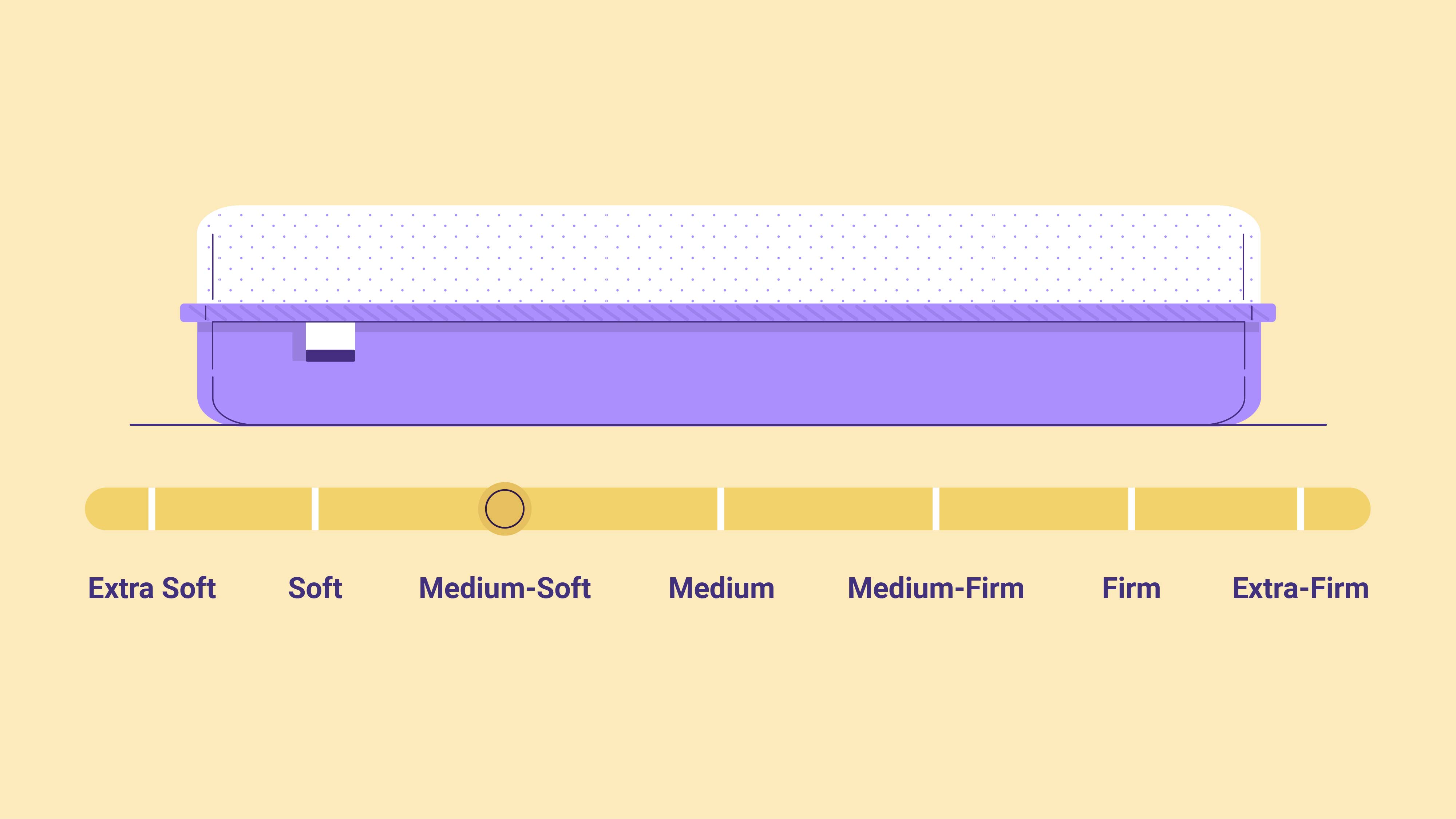 In conclusion, the
firmness scale
is an essential factor to consider when purchasing a new mattress. It affects the quality of your sleep and can have a significant impact on your overall health and well-being. By understanding the firmness scale and considering your personal preferences and needs, you can choose a mattress that provides the perfect balance of comfort and support for a good night's sleep.
In conclusion, the
firmness scale
is an essential factor to consider when purchasing a new mattress. It affects the quality of your sleep and can have a significant impact on your overall health and well-being. By understanding the firmness scale and considering your personal preferences and needs, you can choose a mattress that provides the perfect balance of comfort and support for a good night's sleep.



